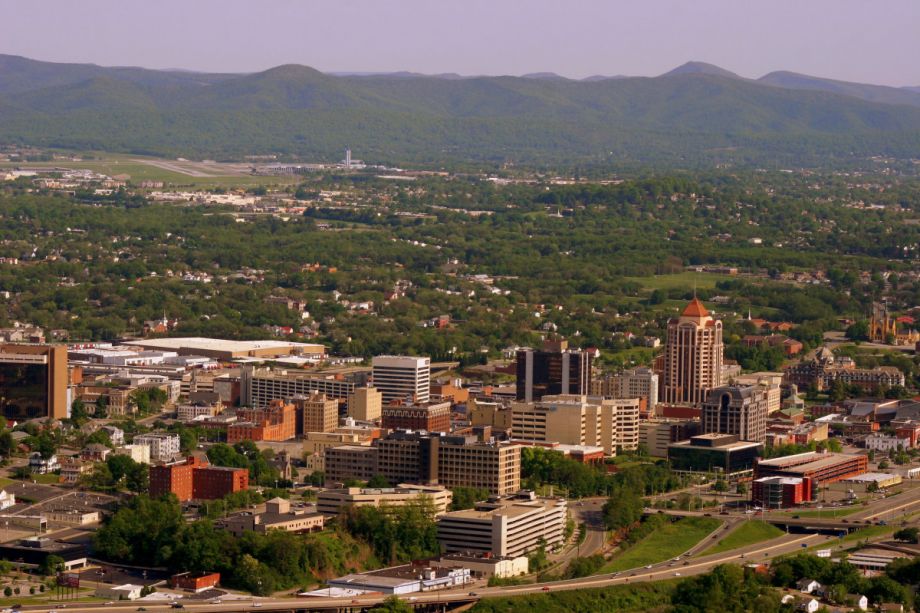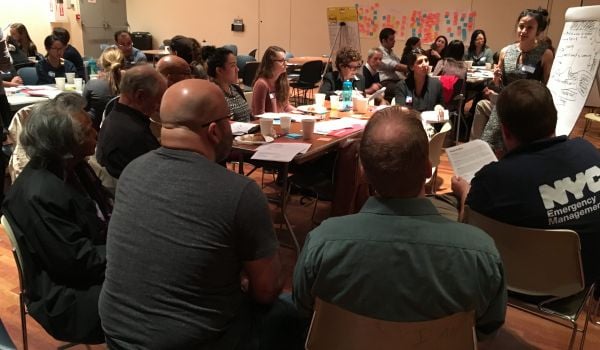For more than a decade, officials in Roanoke, Virginia, have been concerned about glaring health disparities among its residents.
If you were to stand looking out a sixth-floor window of the city’s major community hospital, you would see the two neighborhoods with the lowest life expectancies in the city. And Roanoke is not alone in this ironic disparity. In many cities, the neighborhoods with the poorest health are right next to the major health facilities.
In the historic and once-thriving Black community of Northwest, the ravages of urban renewal and decades of redlining started the downward spiral of disinvestment and decline. The second nearby neighborhood, Southeast, was decimated by the loss of manufacturing jobs that hit its low-income, predominantly white residents hard.
Where you live should not determine how healthy you are – or how long you live.
Yet, in Roanoke and across America’s cities, from neighborhood to neighborhood, vast inequities persist in residents’ health due to social, economic and racial factors. All in all, an estimated 83% of the U.S. population experiences health inequities. The COVID-19 pandemic has only exacerbated these inequities and highlighted the fact that no part of America is immune to these challenges.
To address some of these inequities, the White House announced last month an ambitious plan to end hunger in the U.S. by 2030 – a critical piece of advancing health equity throughout the federal government via the Biden Administration’s equity agenda. This is a vital endeavor at the federal level, and there are already exciting and transformational efforts underway at the community level by city leaders to reduce inequities everywhere.
City leaders — mayors, other elected officials and appointed administrators — are in a unique position to tackle health inequities because they can influence the policies, practices, systems and structures which are driving inequities. And their efforts are having a real impact on countless Americans.
Earlier this month, many of the innovative city leaders who head these efforts convened in Washington, D.C. for the Cities of Opportunity Solutions Forum. There, city officials had a rare platform to celebrate successes in advancing health equity, share tools and strategies, and highlight the transformative progress being made toward addressing the root causes of health inequities — the disparities baked into cities’ policies, practices, systems and structures.
Uncovering and addressing historical inequities
Historically, important urban policy decisions have been often made without key stakeholders and communities at the table. The introduction of zoning ordinances in the early 1900s, for example, established exclusionary development patterns that continue to devastate some neighborhoods at the expense of others — such as placing industrial development near low-income neighborhoods. Redlining in the 1930s established patterns of disinvestment in communities of color. Additionally, decisions from the 1950s through today about where to locate highways, parks or sidewalks have wiped out entire neighborhoods and abandoned the remaining residents.
American cities are creating innovative solutions, such as the efforts in Roanoke, Virginia, where city and community leaders collaborated to identify, highlight and then address the root causes of health inequities for two neighborhoods with the worst health outcomes.
Addressing low life expectancy in these neighborhoods topped the Roanoke city team’s agenda when they began participating in the National League of Cities’ Cities of Opportunity initiative. As the city committed to addressing these health inequities, officials began by taking the crucial step that every city engaging in equity work must take: making people fully aware of health inequities in their community and their root causes.
For Roanoke, that meant extensive community discussions. When updating the city’s comprehensive plan, city staff intentionally incorporated components related to “health” and “equity” directly into it. As a result, all their public discussions about the plan included a focus on equity related to health.
Simultaneously, community conversations were taking place, particularly in Northwest, focused on racism’s historic role in shaping the city. Similar discussions took place in primarily-white Southeast, where socioeconomic decline and poverty have also been significant. As a result, both communities increased awareness and built a common language to speak about race-based and socioeconomic inequities.
The city is now reaping the benefits of its broader understanding of the root causes of inequities, as well as the community’s willingness to address them. A new health clinic is opening in Southeast, new investments in affordable housing and employment opportunities are being made, and a new initiative called “Neighborhoods of Opportunity,” which explores and funds citizen-driven interventions that address the social determinants of health, has begun.
Roanoke’s story is just one example of a city that has taken important steps to address health inequities. City leaders have the power to bring about transformative progress toward health equity, yet doing so can be extremely complex and daunting. To tackle the inequities that shape health disparities, collaboration and partnership with communities are essential.
Clarence Anthony is the CEO of the National League of Cities, the largest and oldest organization representing America's cities, towns and villages and their leaders.
















